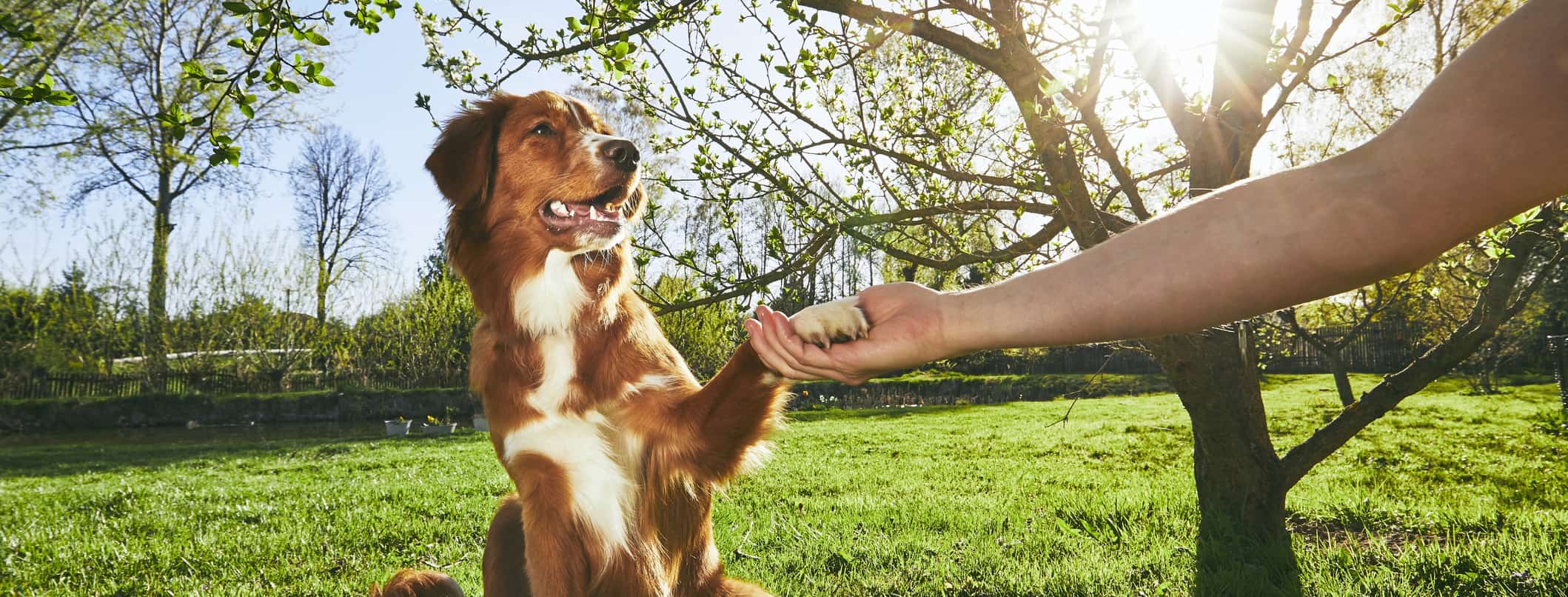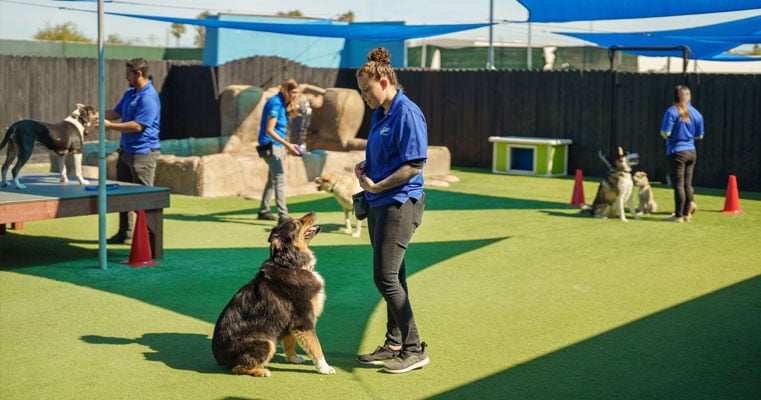The Ultimate Overview to Positive Support in Dog Training
The Ultimate Overview to Positive Support in Dog Training
Blog Article
Vital Tips for Effective Dog Training: An Overview for Animal Owners
Effective dog training is a diverse process that calls for a calculated strategy customized to both the pet dog's character and the proprietor's purposes. Key components such as developing constant commands, employing favorable support, and assisting in very early socialization play critical roles in cultivating a well-adjusted canine companion. Nevertheless, several animal proprietors experience challenges that can prevent development, causing stress and unpredictability. Comprehending how to browse these barriers can substantially improve the training experience, ultimately transforming the connection in between owner and dog. What are the vital methods that can be employed to make certain success in this endeavor?
Comprehending Canine Habits
Understanding pet behavior is important for efficient training and fostering an unified connection in between canines and their owners. dog training. Canines interact largely via body language, articulations, and actions, making it critical for proprietors to interpret these signals accurately.

Socialization plays a substantial duty in pet actions; direct exposure to different environments, people, and various other pets can dramatically affect a dog's character. In addition, aspects such as breed attributes and private personality should guide training approaches, as some breeds may have particular behavior qualities that necessitate customized methods. By understanding these elements, owners can develop a supportive atmosphere that encourages favorable behavior, causing successful training results and a deeper bond with their family pets.
Developing Regular Commands
Effective interaction with your pet dog begins with developing consistent commands. This foundational aspect of training is essential for cultivating understanding in between you and your pet dog. Consistency in the commands you utilize makes certain that your canine can dependably associate particular words or expressions with the desired behaviors.
When choosing commands, choose clear, unique words that are very easy to differentiate and claim from each other. Prevent using similar-sounding commands that may confuse your canine. As an example, making use of "sit" and "stay" is appropriate, however "sit" and "hit" might lead to misconceptions.
Additionally, preserve the exact same tone and quantity for every command. Dogs are sensitive to singing cues, so varying your tone can create complication.
It is just as vital to guarantee that all member of the family are on the same page pertaining to the commands used. A united front in command use will certainly prevent blended signals and reinforce the discovering process.
Positive Support Techniques
The power of positive support in pet dog training depends on its ability to encourage wanted habits through rewards and appreciation. This strategy is grounded in the concept that actions followed by desirable results are a lot more likely to be repeated. By incorporating positive reinforcement right into your training regimen, you can properly form your pet's behavior in a positive manner.
To implement favorable reinforcement, it's important to identify what motivates your dog, whether it be treats, toys, or verbal appreciation. When your pet executes a desired action, such as remaining on command, immediately reward them with a reward or affection. This association between the command and the positive end result enhances their understanding.
It's essential to timing the rewards correctly; providing the reinforcement within secs of the preferred actions aids your pet make the link (dog training). Additionally, consistency is vital-- make sure that all relative utilize the exact same commands and incentive systems to prevent confusion

Gradually, you can reduce the frequency of deals with as your pet dog discovers the habits, transitioning to applaud or periodic rewards. This method not only promotes a solid bond in between you and your pet dog yet also promotes a favorable discovering environment, making training an enjoyable experience for both.
Socialization and Interaction
Continually revealing your dog to a variety of environments, people, and other pets is crucial for their social advancement. Socializing should begin early, preferably during the crucial home window of 3 to 14 weeks, when young puppies are most responsive to new experiences. Older pets can additionally profit from continuous socializing initiatives.
Present your pet dog to different settings, such as parks, pet-friendly stores, and city locations. This direct exposure aids them adjust to different stimuli, lowering stress and anxiety and anxiety responses. Motivate favorable communications with various other pets and individuals, this content ensuring that these encounters are safe and regulated to cultivate self-confidence.
Utilize organized playdates with courteous canines, as this can boost your pet's social abilities and teach them appropriate behavior. Obedience classes and training sessions likewise give excellent possibilities for socializing, permitting your pet to connect with others in a supervised atmosphere.
Display your dog's body language during interactions, as this will certainly aid you evaluate their convenience level. Slowly raise exposure to even more tough circumstances while ensuring that each experience is favorable. A well-socialized dog is a lot more most likely to exhibit balanced behavior, making them a happiness to have in any type of setup.
Dealing With Usual Training Obstacles
Every dog owner will experience training difficulties at some factor, no matter their pet dog's age or socialization degree. Identifying usual issues such as stubbornness, diversions, and terror can help in establishing effective strategies for renovation.

Diversions during training sessions can thwart focus. To battle this, begin training in a quiet setting with minimal stimuli. Progressively introduce distractions as the pet becomes extra competent in commands. Short, constant training sessions are likewise effective in maintaining attention.
Fearfulness can impede a pet's learning process. Progressive desensitization to the resource of concern, combined with favorable reinforcement, can aid reduce anxiousness. Patience is crucial; never ever compel a pet dog into a circumstance that causes distress, as this might intensify the issue.
Eventually, understanding and resolving these usual difficulties with an organized strategy will certainly promote an extra effective training experience, strengthening the bond in between pet and owner while advertising efficient discovering.
Verdict
In recap, effective pet training counts on an extensive understanding of canine actions, the establishment of regular commands, and the application of positive reinforcement strategies. Socialization plays a crucial role in developing well-adjusted pets, while attending to common training difficulties requires patience and flexibility. By implementing these vital strategies, family pet proprietors can cultivate a solid bond check here with their pet dogs and promote preferable behaviors, ultimately resulting in an unified relationship between human beings and their canine companions.
Recognizing pet dog actions is necessary for efficient training and promoting an unified connection in between dogs and their owners.Socializing plays a substantial duty in pet actions; direct exposure to numerous atmospheres, individuals, and various other pets can substantially affect a dog's personality.The power of favorable support in pet training why not look here lies in its capacity to encourage wanted habits with incentives and praise. By including positive support right into your training regimen, you can effectively shape your canine's behavior in a useful way.
In recap, successful canine training depends on a comprehensive understanding of canine actions, the facility of consistent commands, and the application of positive support strategies.
Report this page